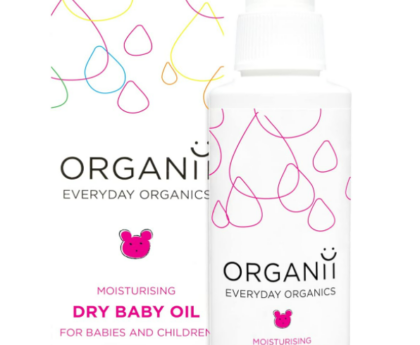Wigan Warriors tackle diet with first-of-its-kind sports nutrition trial with YorkTest food intolerence experts
A personalised ‘diet DNA’ approach adapted for food intolerances helps rugby team to the top
>> www.yorktest.com
Wigan Warriors Rugby League Club clinched the Super League title in 2016 – after completing an in-depth nutritional trial that is the first of its kind in sport.
The Warriors threw everything they had at last season’s Super League competition, and their cause was boosted following a significant health trial involving 24 first team players who each put their bodies and diets under the microscope for three months in a bid to reach peak performance.
The Club’s nutritionist, Ed Tooley, enlisted the help of food intolerance experts YorkTest Laboratories, to put the players through their paces. With the support of YorkTest’s Tom Cookson, each participant underwent blood tests to identify food intolerances that could be impacting upon their health and match fitness.
The trial began in January 2016, with the aim of tackling symptoms such as fatigue (an issue flagged by 87% of the players), muscular-skeletal pain (a complaint for 75%) maintaining weight gain (67% identified as a problem), alongside migraine, low energy, joint pains, skin and respiratory conditions and digestive complaints. The study revealed that:
- 58% of the players participating felt their symptoms negatively affected their on-pitch performance
- Some team members had been experiencing problems for over 10 years
- 67% felt their performance improved as a direct result of their new diet
- 83% vowed to stick to the dietary changes made.
England international Dan Sarginson (pictured) was advised to avoid eggs, yeast and soya in a bid to keep fatigue at bay. He explained: “For more than a year I’ve felt that tiredness has had an impact on my performance on the pitch. Since limiting my reactive foods, my energy levels totally improved – I felt a 100% improvement within a week. And when I ate problem foods my symptoms came back.”
Highly rated centre Oliver Gildart had suffered debilitating migraines for more than ten years, with episodes several times per month. After limiting reactive foods, including cow’s milk the migraines have stopped completely.
Dr Gill Hart, Scientific Director of YorkTest , who led the pilot, advised: “It’s important not to generalise or assume that certain symptoms mean you have the specific intolerances – your ‘triggers’ are as unique as your DNA. After all, we all have digestive systems that are specific to us. This type of study with a team of professional rugby players has never been done before and what we found is that a diet personalised to account for food intolerances can have a crucial, proven and lasting impact on sporting performance, as well as individual health and wellness.”
The players completed questionnaires about their health, performance and fitness levels at baseline (Day 0) and then after 1 month and 3 months, with medical metrics also captured.
Results of the blood tests (which measure food-specific IgG antibody reactions analysed at YorkTest’s fully accredited UK laboratory) revealed some players had sensitivities to up to 20 food items, with an average of seven intolerances among the team members.
Under supervision of the team’s Performance Nutritionist Ed Tooley, players were provided with individual strategies, eliminating their personal ‘trigger’ foods thanks to team chef Marti Cameron supporting the dietary changes required with bespoke meals at their training ground.
Ed, who has spent seven seasons working with the Warriors, explains: “I’ve recommended YorkTest programmes with other professional sports players, from footballers, athletes to tennis players, and seen first-hand the results it can deliver to improve performance. For this particular study, we took it to the highest level and had the backing from the entire Club, including the performance team, players and catering. With nutritional guidance sometimes sports professionals have so much to focus on that they’ll adopt new practices in a phased or ad hoc way rather than making an habitual change, so the fact that the majority of the first team have committed to new diets to eliminate their personal intolerances is a great endorsement. We hope the results continue to be reflected on the pitch and sets the Warriors on course to win some silverware this season.”
Mark Bitcon, Head of Performance, added: “Nutrition is fundamental to helping the team compete during a busy, sometimes punishing match schedule, as well as for support recovery and regeneration. It’s something that it’s crucial to get right. The performance team is always looking at new techniques and with this approach the Club is showing it will leave no stone unturned to get the team out there performing to our very best.”
Dr Gill Hart commented: “As sports professionals, the importance of diet to performance can’t be underestimated, so it’s vital to acknowledge the impact of food intolerances on the body. If the immune system is reacting to foods it sees as hostile, this may result in symptoms that present a barrier to these players being the very best they could be.
“Importantly, this isn’t about just following a nutritious eating plan because it’s possible that ‘healthy’ foods could be causing problems. At YorkTest we passionately believe that when it comes to diet one size does not fit all, and this is especially true for sports players whose life and livelihood depends upon being at a peak of health and fitness. This research backs up our belief in the importance of a personalised ‘food fingerprint’ to aid wellbeing.”
YorkTest’s Food & Drink Scan programme, priced at £299, analyses a person’s IgG reaction to 158 food and drinks. After identifying intolerances, the company’s team of experts provide nutritional advice to replace problem foods whilst maintaining a balanced and healthy diet.








